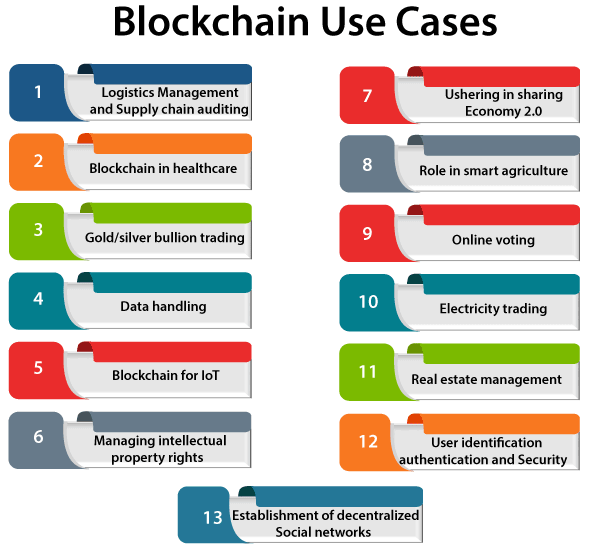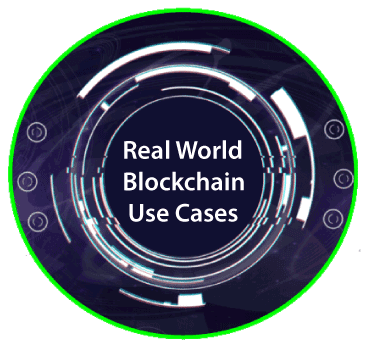Blockchain Applications
Blockchain Applications
Many organizations around the globe realize the need and importance of Blockchain technology to improve the legacy systems and digital processes in terms of transactions and record-keeping technology in favor of more flexible and efficient structures.

Need of Blockchain
Blockchain technology has great potential to modernize the government and the public sector. With increasing pressure for improved performance, transparency, and accountability, as well as reduced costs, many governments are turning to Blockchain as a solution to their most difficult challenges.
The governments across the different countries, including Estonia, Georgia, and Sweden, are testing with Blockchain-based land registry systems, enabling multiple parties to keep copies of the registry record securely. Property-related issues can be resolved transparently by using blockchain technology and can be prevented from the frauds.
Some of the governments are trying to recognize the foundation for a modern, 21st-century operating system that enables flexible, secure, and more efficient government plans for citizens because of Blockchain. The blockchain-based government can be a trusted solution that will allow the following:
- Secure storage of citizens and business data
- Reduction of labor-intensive processes and high costs
- Reduced chances for abuse and corruption
- Increased trust in government and digital civil systems
Benefits of Blockchain in Governance
A Blockchain-based digital government can protect data, modernize processes, and reduce fraud, waste, and damage while simultaneously increasing trust. It enables the following benefits:
1. Build citizens’s trust
A Blockchain-based solution can improve the clearness through the decentralized system, allowing participant entities to manage and verify records. A Blockchain-based system could allow the citizens for independent verification of the legal claims.
2. Protecting Sensitive Data
Government databases are easy targets for hackers because of their shabby record-keeping system. These activities could be easily avoided through the use of Blockchain technology. Such technology with different structures stabilizes network security by reducing failure risk.
3. Cost reduction & Improved Efficiency
Government organizations must fulfill their targets while managing unusual problems. Blockchain model could remove the ambiguity, redundancy, decrease burden, increase transparency, and certify data and information integrity with improved performance.
4. Validation of Qualifications
Blockchain technology helps in keeping academic as well as personal data on an identity wallet that records the encrypted data, which allows individuals to control and access their documents. It also allows schools, universities, and organizations to validate confirmations for courses and work achieved.
5. Tracking Vaccinations
Vaccination data and records can also be recorded on the Blockchain platform that allows schools, companies, insurance, and hospitals to verify vaccinations transparently. The model allows the generation of automatic micropayments and provides access to benefits medical status.
6. Tracking Loans and Student Grants
Blockchain technology can also help in tracking loans. Smart contracts can help to manage and grant loan applications when the pre-defined terms and conditions are met. One can easily dispense loans and monitor the agreement with the help of smart contracts.
7. Faster and Efficient Tax Collection
A system based on blockchain automatically transfer salary and tax transactions to their respective clients, which makes tax collection transparent, and efficient. Smart contracts from Blockchain improve the process by modernizing the tax collection and by matching tax-related data with transactions.

Blockchain Use Cases Implemented by Governments
1. Smart Dubai Initiative
Dubai has opted for the citywide initiative to make Dubai the first city fully powered by Blockchain technology by 2022. Government officials aim to empower the civil rights and promote an efficient method, modern solution, and impactful experience for their citizens.
2. Project Khokha: Interbank payment settlement with Blockchain
Project Khokha is an Enterprise Ethereum solution founded by the Reserve Bank of South Africa, increasing transaction limit and network flexibility while maintaining confidential requirements for real-time gross settlements.
3. Initiatives by Indian Government
The Telangana state government has conceptualized the Country's first 'Blockchain District,' which will be a working area within Hyderabad only, aiming to create the ecosystem. Telangana government had already signed an agreement with Tech Mahindra to develop a fully functional Blockchain-based district.
4. Government-Backed Blockchain Learning Project
Indian Ministry of HRD has initiated a learning platform called Swayam, which is offering a free online course on Bitcoin, and Blockchain entitled "Blockchain Architecture Design and Use Cases" to promote the Blockchain technology in the Country.
5. Blockchain Initiatives by NPCI
The National Payments Corporation of India, a bank association owned umbrella organization for retail payments and settlements. They are planning to use Blockchain to improve digital transactions. The government is working on a Blockchain-based solution to fight the Country's counterfeit drug trade.
6. Land Registry in Andhra Pradesh
Andhra Pradesh has implemented India's Blockchain-based byzantine land-record system. The authority is planning to use Blockchain technology to improve the poorly maintained paper records, exposed to damage, and tampering with records.